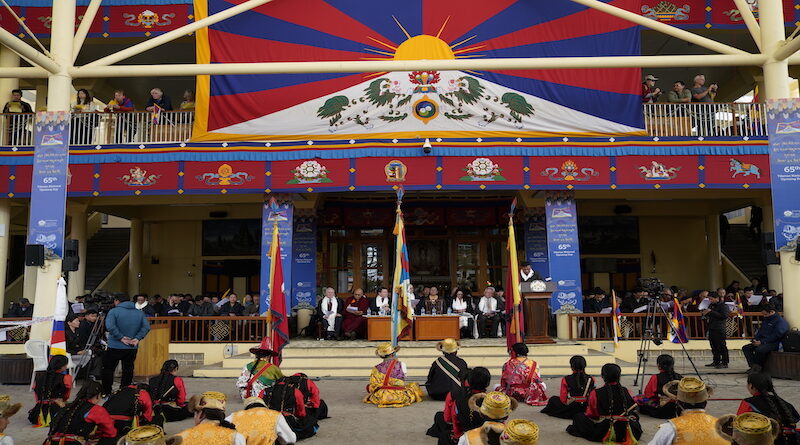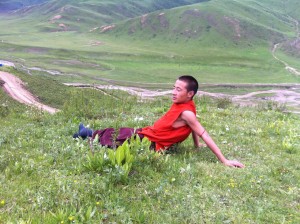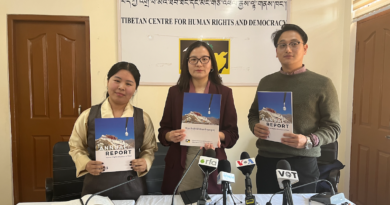CTA, Tibetans In Dharamsala Commemorate 65th Anniversary of Tibetan National Uprising Day
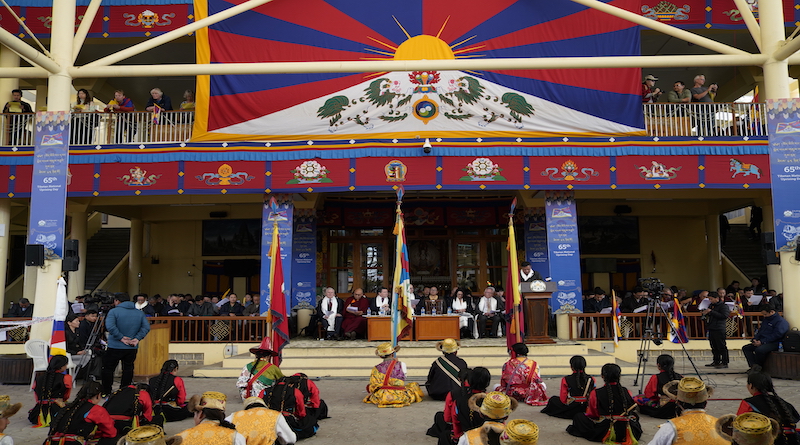
By Tsering Choephel
DHARAMSALA, 10 March: In commemorating the 65th anniversary of the Tibetan National Uprising Day on March 10th, 1959, the leadership of the Tibetan government in exile, commonly referred to as the Central Tibetan Administration (CTA), and Tibetans living in Dharamsala gathered at the courtyard of Tsuglag-Khang, the main temple in McLeod Ganj this morning.
The function, presided over by CTA’s President Penpa Tsering and Speaker of the Tibetan Parliament in exile (TPiE) Khenpo Sonam Tenphel, had chief guests Michael Brand, a member of the German Bundestag, and four politicians from Australia: Michael McCormack, Deborah Mary O’Neill, David Smith, and Dean Anthony Smith.
The Kashag’s (Cabinet) statement recalled not only the sacrifices of Tibetans who rose up against the Chinese communist forces in 1959 but also those involved in peaceful protests in Lhasa in 1987, 1988, and 1989, with the CCP imposing Martial Law in 1989, as well as the 2008 uprising since when 160 Tibetans have self-immolated themselves.
It said, “On this solemn occasion, we remember and offer our prayers in honour of our compatriots who have given their lives for the cause of Tibet. We stand in solidarity with those who are still suffering under the brutal occupation of the People’s Republic of China.”
The statement elaborated on the CCP’s continuing repression of Tibetans and its efforts toward the sanitisation of the Tibetan language and religion through various discriminatory policies and laws. The Kashag called upon “the PRC government to allow Tibetans to learn, use, and develop Tibetan as their official language as guaranteed in the Chinese Constitution and Law on Regional National Autonomy.”
Reiterating CTA’s commitment to the Middle Way Policy to resolve the Sino-Tibet conflict through dialogue, the statement called on Beijing to “immediately cease its misguided policy of eradicating the Tibetan identity and culture, which could cause deep wounds and antagonism between Tibetan and Chinese people.”
TPiE’s speaker read its statement which detailed the deteriorating situation inside Tibet. The statement condemned Beijing’s false narrative of Tibet’s situation under Chinese rule which “speaks of achieving socio-economic development as the advancement of human rights and has sought to point to this as evidence that Tibet has progressed and that its people are happy.” It added, “This is a totally false canard spread by the government of China in an attempt to deceive and mislead governments and peoples across the world, with a design to conceal the true picture of the critical situation there.”
Both the president and the speaker highlighted the latest crisis endangered by the Chinese government’s plan to build a major hydroelectric power dam complex in the Derge area of Kham on the Drichu. In addition, both their respective statements spoke about China’s employment of ‘Transnational Repression’ to threaten and silence those who stand up against the CCP.
All foreign guests expressed high appreciation for Tibetans’ resilience and peaceful struggle for freedom. They all acknowledged that Tibetan’s religious, cultural, and linguistic identity is currently being eroded by the PRC’s discriminatory treatment of Tibetans and conveyed their support for Tibetans’ fight against it.
Michael McCormack, a member of the Australian House of Representatives, stressed the importance of giving voice to young people, saying that they are the ones who will carry forward Tibet’s freedom struggle and preservation of Tibetan identity into the future.
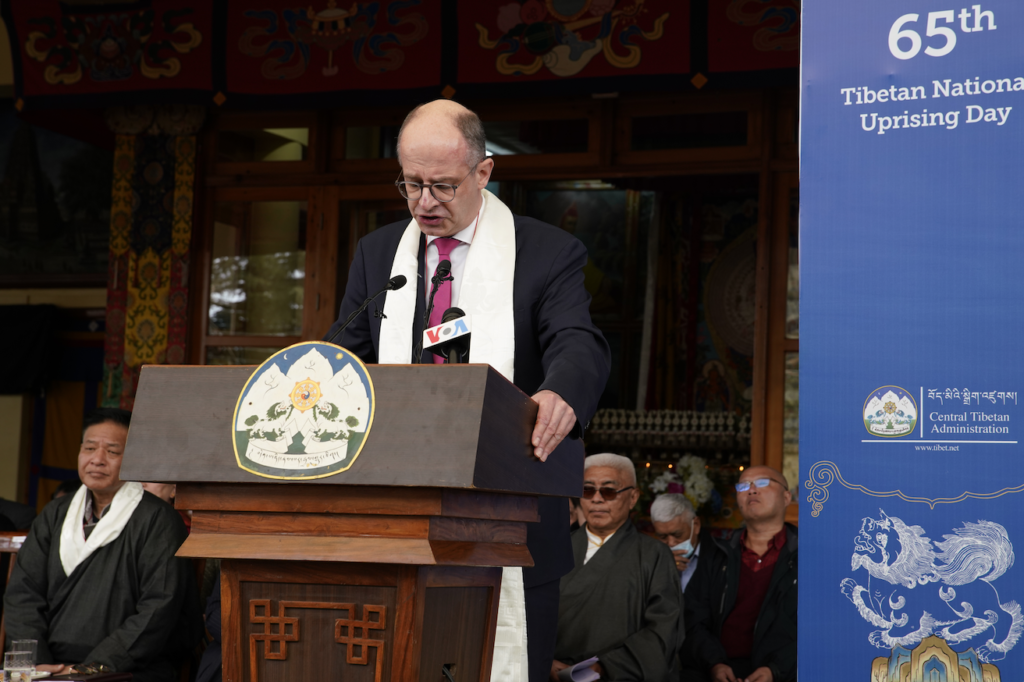
Michael Brand, a member of the German government, in his address expressed gratitude to be invited to the occasion which, in his words, is to “Commemorate the courageous struggle of the Tibetan people against the aggressive, oppressive, and brutal invasion by Communist China in 1959.” Referencing his own country’s history, the reunification of Germany in 1990 after tumultuous years of two separated Germany, he expressed the inevitability of the fall of Communist China and the resurgence of a united Tibet in the future.
After the official ceremony was concluded, the gathered Tibetans and supporters started the marching protest, beginning from the gate of the main temple to the ground near Kachari at lower Dharamsala. Carrying Tibetan national flags and placards with various statements, the organisers led the march shouting slogans, calling for the “long life of His Holiness the Dalai Lama”, “Tibet’s Independence”, and “China get out Tibet” among others.
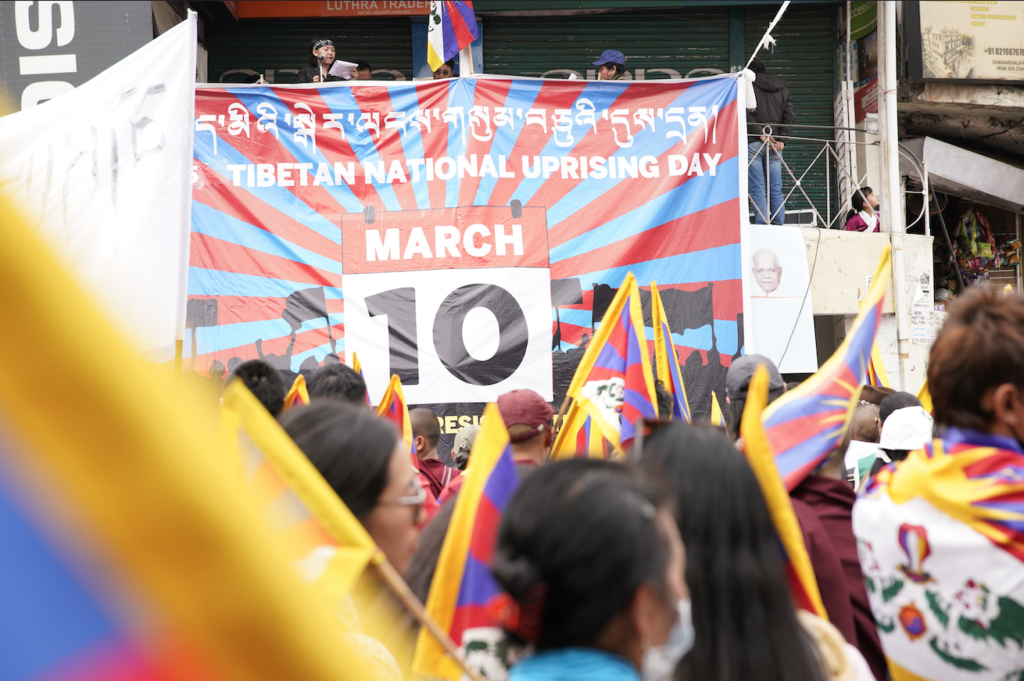
The march was organised by the four leading Tibetan NGOs in Dharamsala, namely the Tibetan Youth Congress, Tibetan Women Association, National Democratic Party of Tibet, and Students For a Free Tibet – India.
Their press statement remarked the historic March 10th, 1959, as a day “Deeply ingrained in the collective consciousness of Tibetans worldwide as a source of inspiration and unwavering commitment to our cause.”
The statement further highlights the continuing and deteriorating situations inside Tibet with the CCP’s escalating measures in its efforts to eradicate Tibetan’s cultural, linguistic, and religious identity by enacting various draconian policies and laws.
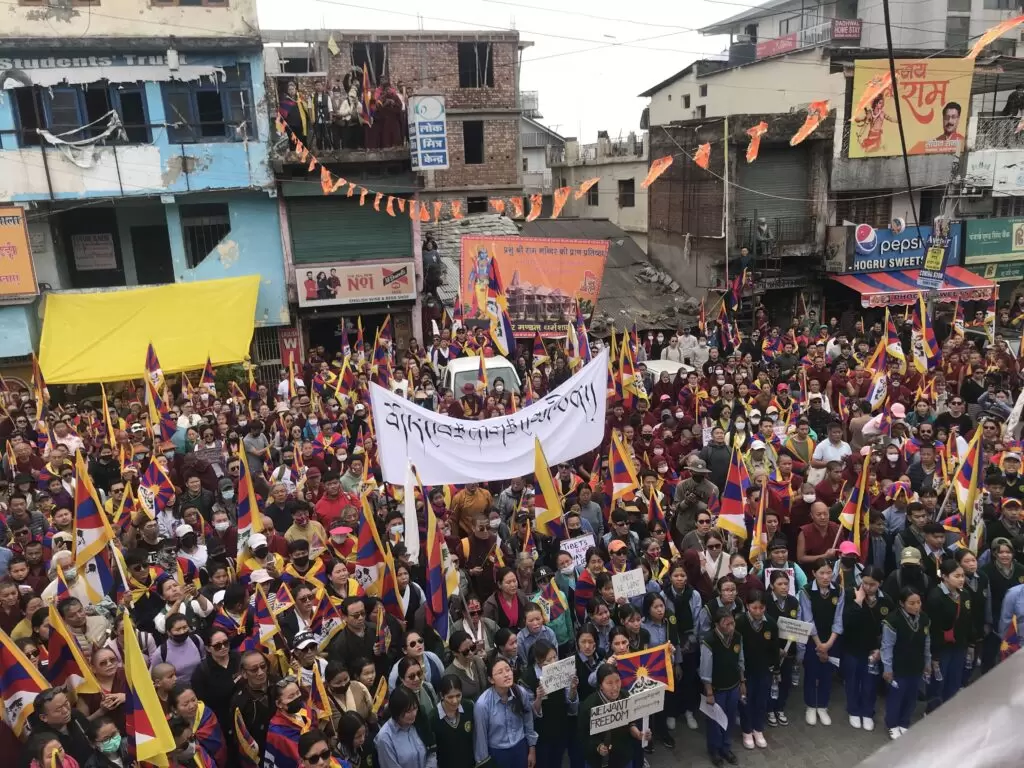
However, “The enduring belief in Tibet’s historical independence fuels our collective spirit,” it says, adding “Tibetans worldwide have steadfastly advocated for our inherent rights.” Moreover, it says that “In light of the persistent adversities endured by Tibetans, especially those within Tibet itself, the unity and collective action of Tibetan organisations and individuals worldwide are indispensable.”
“Together, bound by our steadfast commitment, we will persist in our noble pursuit of freedom for Tibet, standing shoulder to shoulder until justice prevails,” it added.
Tibetans all over the world today commemorate this significant occasion in remembrance as well as in continuation of Tibet’s struggle for freedom. However, Tibetans in Nepal are barred from observing March 10th for several years due to China’s escalating influence and pressure on the Nepalese government.

